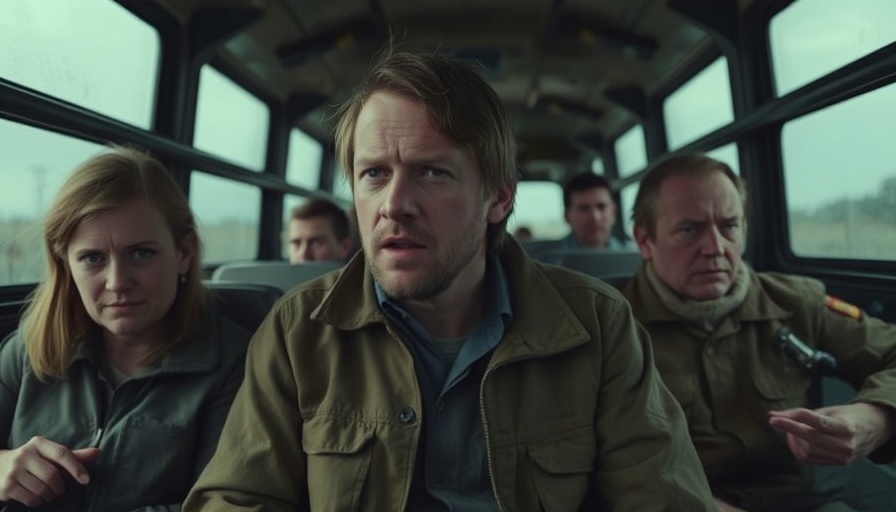
Understanding the Harrowing Context of Wildfires
In Paul Greengrass's intense new film, The Lost Bus, viewers are thrust into the chaos and terror of California's most devastating wildfires, including the infamous Camp Fire of 2018. This historical context is crucial, as the film not only reenacts a cataclysmic event that destroyed over 13,500 homes and claimed 85 lives but also serves as a reminder of the ongoing threat of wildfires in the state. Through compelling visuals and a dizzying audio experience, Greengrass highlights the urgency of living amidst nature's fury. For digital nomads and explorers, understanding the realities of such natural disasters becomes essential, especially when considering travel safety amid ecological instability.
The Emotional Weight of Environmental Storytelling
Greengrass’s approach evokes a strong emotional response, using fear as an engaging narrative tool. The film unsettles viewers from the outset, depicting the life-threatening scenarios that families face, especially children being shuttled along precarious roads. For those who appreciate cultural insights through cinema, The Lost Bus pushes audiences to confront the raw, distressing nature of modern environmental catastrophes. This film aims not just to entertain, but to educate and instill a sense of urgency regarding climate change and disaster preparedness, urging viewers to engage with the subject on a deeper level.
Why Character Depth Matters in Storytelling
Despite Greengrass's technical prowess, the film has drawn criticism for its lackluster script, particularly in character development. Viewers may find themselves longing for more relatable, nuanced characters, akin to those portrayed in HBO's Mare of Easttown. For digital nomads interested in cultural narratives, well-developed characters can enhance emotional engagement and foster greater understanding of the dilemmas presented by calamities such as wildfires. The desire for authenticity in storytelling raises questions about the impact of representation – an essential element for those keen on exploring diverse stories while traveling.
The Call for Environmental Awareness
The film serves as a dire warning about the continuing risks posed by climate change. In addition to artistic merit, it emphasizes the pressing need for communal awareness and proactive measures to combat environmental disasters. As digital nomads traverse various cultures, they carry the responsibility not only to engage with local communities but also to comprehend the ecological perspectives that shape those communities' experiences. Greengrass’s film subtly suggests that understanding the stakes of climate change can drive advocacy and action among global citizens.
Future Predictions for Environmental Cinema
The buzz surrounding The Lost Bus signifies a growing trend in filmmaking focused on environmental issues. As audiences become more conscious of climate change and its effects on various cultures, filmmakers may increasingly turn to real-life catastrophes to inspire change. With digital nomadism rising, there is an opportunity to intertwine travel and education, as the stories told through cinema fuel awareness and influence responsible travel practices. This may well alter how future generations perceive and mitigate the impact of environmental shifts on global cultures.
 Add Row
Add Row  Add
Add 




Write A Comment